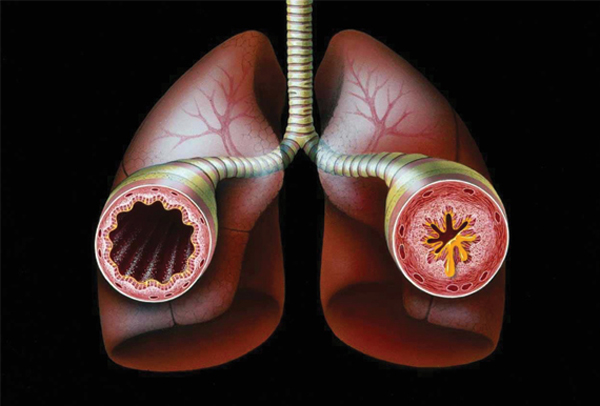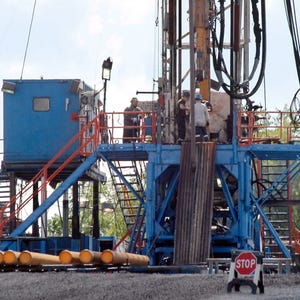A new study found that asthma patients in Pennsylvania living near unconventional natural gas developments, also known as fracking, were up to four times more likely to experience an asthma attack.
The study, released Monday in JAMA Internal Medicine, classified asthma exacerbation into three categories: mild or needing medication, moderate or needing an emergency room visit, or severe, needing hospitalization.
Asthma patients living close to more or bigger natural gas wells had a higher risk of attacks in all three asthma stages, said lead author Sara Rasmussen, a Ph.D candidate at Johns Hopkins Bloomberg School of Public Health .
Researchers found that the greater risk showed up in all four phases of well development: pad preparation, drilling, stimulation — the actual fracturing — and production.
Researchers pulled data of asthma patients treated at the Geisinger clinic in Pennsylvania from 2005 and 2012, which spanned 40 counties and identified over 35,000 asthma patients.
Fracking can induce asthma attacks in three ways, according to Barbara Gottlieb, Environment and Health program director at Physicians for Social Responsibility. She was not involved in the study.
The release of volatile organic compounds can interact with other chemical in the fracking sites to form ground-level ozone, an asthma-inducing pollutant. Increased industrial activity near fracking sites, such as transportation, also aggravates asthma symptoms. And natural gas, or methane, leaks that occur at fracking sites add to asthma exacerbation as well by accelerating climate change and increasing temperatures which increases ground-level ozone.
“It’s really like having a heavy industrial facility on your yard or on your farm,” Gottlieb said.
While the study cannot make a causal connection between asthma and fracking, it adds to an increasing body of evidence around its public health impacts.
Groundwater contamination, air pollution and social problems like increased crime rates near fracking sites are just some of the many public health concerns related to fracking, which can lead to blood disorders, respiratory problems and birth defects, Gottlieb said.
Public health threats linked to fracking can also extend miles beyond the well sites due to leaks in transportation pipes.
“I’m sorry but these pipelines leak,” Gottlieb said. “So wherever (the pipelines) are, you’re actually transporting these threats too.”
Follow Ryan Miller on Twitter @MILLERdfillmore




No comments:
Post a Comment